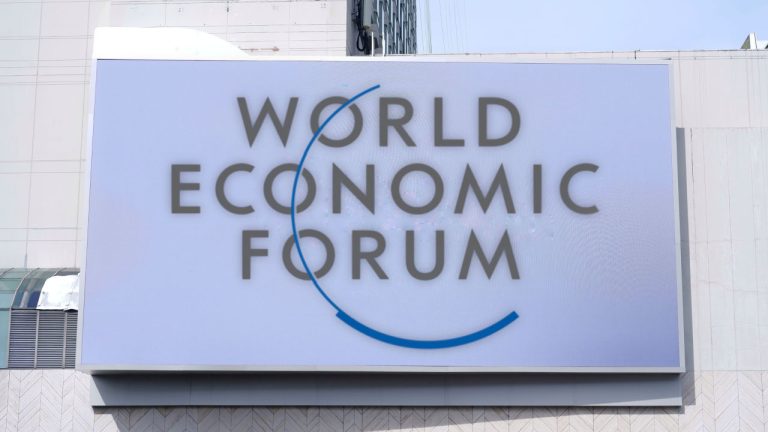Davos 2023: WEF Unveils Global Collaboration Village Metaverse Platform
Publikováno: 20.1.2023
 The World Economic Forum (WEF) has announced the rollout of the Global Collaboration Village, its own metaverse platform, for this year. Klaus Schwab, chairman of the WEF, plans to leverage this representation of Davos to allow people and leaders to meet in virtual worlds and coordinate global collaboration efforts efficiently. WEF to Promote Metaverse-Based Collaboration […]
The World Economic Forum (WEF) has announced the rollout of the Global Collaboration Village, its own metaverse platform, for this year. Klaus Schwab, chairman of the WEF, plans to leverage this representation of Davos to allow people and leaders to meet in virtual worlds and coordinate global collaboration efforts efficiently. WEF to Promote Metaverse-Based Collaboration […]

The World Economic Forum (WEF) has announced the rollout of the Global Collaboration Village, its own metaverse platform, for this year. Klaus Schwab, chairman of the WEF, plans to leverage this representation of Davos to allow people and leaders to meet in virtual worlds and coordinate global collaboration efforts efficiently.
WEF to Promote Metaverse-Based Collaboration
The World Economic Forum (WEF) has announced the rollout of its own metaverse platform, dubbed the Global Collaboration Village. The digital world, designed to look like the actual town of Davos in which the organization meets once every year, will supposedly allow for more efficient collaboration between world leaders.
According to Klaus Schwab, chairman of the organization, the WEF plans to leverage this new world as a way of turning Davos meetings, which usually last just a week, into a project that will allow for interviews and conversations between world leaders all year round.
Schwab is optimistic about this, as the effect of the policies discussed at Davos might be amplified through constant feedback. “This could revolutionize global collaboration,” he told Time magazine.
The organization believes that meeting through avatars and digital representations might empower the creativity behind these meetings, compared to the video meetings that commonly occur during these events.
Tech and Partners
The technology that would power this metaverse representation of Davos would be provided by Microsoft and its Mesh suite, which extends the functionality of Teams, the popular business meeting software, to allow users to appear as 3D avatars. Mesh also has a specially designed app for VR headsets that allows for more interactivity with the metaverse worlds.
This level of immersion is key for the applications that the WEF aims to give these spaces, like showing the effect that certain measures could have, for example, in restoring ocean coral reefs. Kelly Ommundsen, head of the WEF metaverse project, stated the group is “trying to do things that can only happen in the metaverse—because if it’s better done in person or on paper, then it doesn’t make sense.”
Schwab has already enlisted the collaboration and presence of several partners, including Meta and the International Monetary Fund (IMF), that will populate the village spaces with their projects. He expects some kind of resistance to this initiative, but also expects a heavier involvement of people from outside the organization. He explained:
We need new ways of international cooperation, which will allow us to involve many more people into our discussions.
What do you think about the WEF metaverse initiative? Tell us in the comments section below